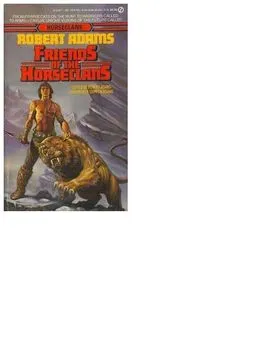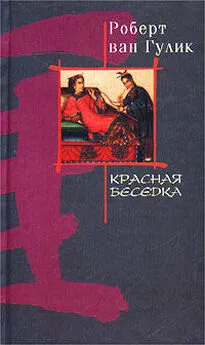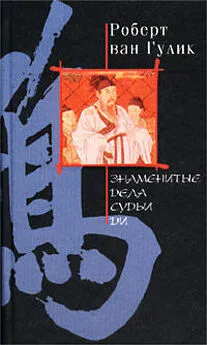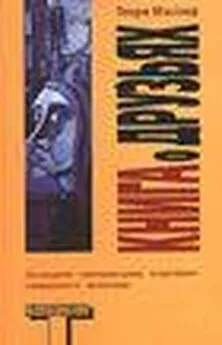Friends (2013) - Adams, Robert
- Название:Adams, Robert
- Автор:
- Жанр:
- Издательство:неизвестно
- Год:2013
- ISBN:нет данных
- Рейтинг:
- Избранное:Добавить в избранное
-
Отзывы:
-
Ваша оценка:
Friends (2013) - Adams, Robert краткое содержание
Adams, Robert - читать онлайн бесплатно полную версию (весь текст целиком)
Интервал:
Закладка:
The one trouble with excessive caution, of course, is that the world pays no heed to the plan. How could Noplis have foreseen that the very next day he would be caught in the cataclysm of an earthquake because of insane machinations by a few Witchmen? Afterward, Noplis would have to agree that firsthand experience adds a dimension of verisimilitude to one’s poetry, but at the time itself, the only thought in his head would be a raw animal urge to survive at any cost.
It began when the earth shook. That part was bad enough, but what bothered Noplis the most was that the horizon he was observing to his left suddenly wasn’t there any longer. The ground was shaking badly by then. Unable to flee, stomach turning over, Noplis prayed that the world return to normal. Instead of tranquillity, he was rewarded by fireballs that tore through the sky in his direction. His instinct to throw himself to the ground was thwarted by the ground moving away—or at least so it seemed, as the earth crumpled beneath his feet. One white-hot rock, the size of four horses, came close enough that he felt the heat on the back of his neck before the stone plunged into a nearby stream. The steam resulting from that immersion drifted in Noplis’ direction, reducing his visibility. This was just as well, as he had no desire to see more—but the hot mist made it difficult to breathe.
By now, the shaking of the ground was at its peak. Somehow Noplis avoided broken bones, although he almost fell into a crevice that yawned open a few feet from where he was trying to maintain his balance. In the midst of chaos, soaring above the cacophony of roars and rumbles below, and the whooshing of rocks above, was a veritable symphony of mindspeak. The bard was one who had the gift developed to the point where he could farspeak. The telepathic cries for help added an unusual counterpoint to the earthquake: Real voices could not be heard for more than a few seconds, constantly drowned out by the grating of stone on stone.
After several attempts to stand, Noplis finally gave up, electing to remain flat upon the ground. He was too tired to get up again. Idly he wondered if the earthquake was a punishment for the previous night’s artistic inadequacy. If so, it didn’t have a very good aim.
The ordeal finally ended. Opening his eyes, Noplis discovered that he was alone. Not a tree was standing as far as he could see. Near at hand was a huge slab of basalt and granite, with streaks of red and brown slashing across it—mineral deposits that made him think that the earth was bleeding. The air was full of dust, enough to make him cough as he rose woozily to his feet.
And there was something else amiss. He didn’t even notice it at first, but when he did, it sent shivers down his back. The symphony of mindspeak was over. He heard not a note, not a word, not a yell. There were no voices.
His head felt as though it had been split in twain. Even so, he called out . . . and the sound of his own voice hurt his temples. For many lonely minutes he cried out, alone. Then came a welcome, mindspoken greeting: “Stay where you are. I can reach you.”
Right away, he knew who it was. His fellow survivor was Flatear.
Whenever he was bored, the Judge would look at himself in a mirror. In fact, he kept mirrors expressly for that purpose. Today he used a round one, with a yellow stain across the top, and one crack running diagonally across the pitted surface. It was one of his best mirrors.
The wrinkled face returned his gaze with large, watery eyes, the color of an eel—his healthiest feature. The protuberance extending from his right cheekbone was still growing, almost imperceptibly lengthening since last he’d taken inventory. It curved over the pulpy indentation where once his nose had been, almost seeming to be a replacement for that organ. He referred to the growth as a beak when he was around the Ganiks, pleased that his head had a birdlike appearance. That, combined with the feathers growing from his thin neck to his twisted shoulder blades, completed the image by which he convinced them that he was an emissary of their god, Ndaindjerd. The absence of a nose had proven a positive boon where that stinking rabble of ghouls was concerned. How convenient for him that they would not eat bird or beast.
As for the rest of the Judge’s visage, it was a catalogue of the putrescent, scars of old diseases making a cobweb pattern across his forehead as if they were strings to a mask. Blue-gray flesh hung upon the skull without softening the contours beneath. He had no chin to speak of, the ears were barely noticeable lumps, and his mouth was the worst part: a few lonesome teeth, sharp as fangs, at odd angles to the ugly purple color of the gums. Yes, thought the Judge, you're looking good.
He thought of himself as Lucifer, fallen from the Center, the ultimate renegade of the Witchmen. He liked that label for his old associates precisely because they hated it. Witches. Across the sad and empty centuries, he had come to loathe his colleagues far more than he did their various enemies. The world the Center would recreate was not for him, any more than was the world that did exist. So he had aspired to something else that would be entirely his. Experimenting in secret with a genetic project of his own, he had secured the services of an assistant named Davidson, a biochemistry man.
Weary of transferring from one body to another, jealous of the High Lord, Milo Morai, and all others blessed with natural longevity, hating everything built by Dr. Stemheimer, the Judge had projected his mind into an artificially developed body. The good news was that the experiment worked, in that the transfer was complete, and that the body did not age . . . exactly. The bad news was that he couldn’t get out of the horribly changing, ever more freakish shell. He’d bought himself a ticket to hell.
When Davidson saw the results of the experiment, he made the mistake of saying: “You are a great man, Doctor. Unwilling to settle for the status quo, you took a self-critical approach, the glory of our scientific method! Despite a few unexpected side effects, with this experiment you open the door to a renaissance. Surely the time has come to share this good news with everyone!” Davidson might have said more had he not been strangled on the spot. The new body was strong, at least. It was the death of the Doctor and the birth of the Judge.
Under the circumstances, he decided to make the best of his lot. One thing he had learned was that the general population agreed on very little, but an opinion that bound men together, however different their creeds, was: Ganiks are the scum of the earth. Brutish, superstitious, unintelligent, disorganized, disloyal, slavering cannibals . . . what possible use could they be to anyone, themselves included? He decided then and there that they were the folk he needed. His knowledge of their customs made it child’s play to convince them of his divinity. They learned to call him by the name he had given himself: the Judge. He didn’t need many of them at first—just a few bullies and their herds.
On the last mission he had carried out when he still inhabited a human body, he’d stumbled upon an underground base in almost perfect condition. He surmised that the original occupants had suffocated perhaps as far back as the Great Change. It was like finding an Egyptian pyramid with all its relics intact. Naturally he kept the find to himself, never knowing when it might come in handy. Today it was his base. So far as the Center was concerned, he had died in a failed experiment, and taken Davidson with him.
It took .months to put his new home in order. If the equipment had not been protected in a virtual vacuum, he wasn't sure what he would have done. As it was, he restarted the generators, turned the lights on, found some functional weapons in the armory, and even discovered Muzak tapes kept in their own airtight container. He reasoned that men of a thousand years ago must have prized this music very highly; because although the Judge remembered a good bit about the twentieth century, he had forgotten other things.
He had the most fun finding his “children,” scaring them first, recruiting afterward. It was Home Sweet Home.
As he preened in front of the little round mirror, there was no way for the Judge to know that, elsewhere, Dr. Braun and Major Corbett had set off explosive charges at the entrance to caves above a volcano, for motives entirely irrelevant to the actual consequences. So far as the Judge could tell, the earthquake that began to knock down the plateau beneath which resided his base was from natural causes. Then again, on several occasions, he had joked to the witless Ganiks around him (he enjoyed talking to himself) that were the earth to split wide open, he would suspect that the Center was behind it, because “they have the qualifications once required by the Army Corps of Engineers.” At the moment, however, the Judge was shaken as thoroughly as if he were in a Mix-master, and he watched his precious mirror fall to the floor and shatter.
The Judge’s Hold withstood the tremors. It had been built to survive nuclear war . . . and had. Within minutes, a bruised Ganik crawled into his presence, fell at his feet, and using one of the forms of address that his teacher insisted upon, said: “Oh, mighty one who looks down from on high, a dozen men were killed in a cave-in in Sector 8.”
“Is there other damage?”
The Ganik shrugged. Well, that would do for a no.
“How long wili it take to clear the exit?”
“Only a few hours, as you have taught us the engineering ways.”
“You’re a smart one, all right. Give the order to collect the bodies if they can be located. Waste not, want not. And most important of all, report to me on how many mirrors I have left.”
“By Sun, Wind and Steel,” said Von, wiping grit from his eyes. “How many can hear me? Call out, or mindspeak!” “Danger increases,” interrupted the prairiecat Swifteye, mate to Flatear. “We must flee the fires.”
“I can see that, cat-sister,” said Von, “but survivors there may be whom we can save.”
White-hot rocks were still falling, albeit smaller ones than before. The fires ignited by these were rushing together, forming one large curtain of red-and-yellow death. The only direction left was off the plateau, but that way was little better than the fire. The terrain was slowly collapsing about them, and no sure footing was possible.
“Follow me, all who can hear my voice or beaming!” called out the chief. Swifteye sent out farspeak, and everyone else converging on the spot added his or her beacon to the call: “LET ALL WHO SURVIVED COME WITH US.” Every rolling pebble or far-off thunder added to their terror.
Berti the cook had a broken leg and arm and was bleeding from his chest. Terrell’s boot splints had protected his ankles from being cracked; he was now withdrawing these bands of metal and using them as splints for his friend’s bones, while the cook retained his good humor, between racking coughs, by insisting that he was better off than the Moon Maiden beside him, whose wound had been terminal: a broken neck.
When the ragtag group was ready to travel, Von went in the lead, checking out the treacherous incline that dared his every footstep. Swifteye was at his side, sending out messages to Flatear—messages that were not answered. Von was the first to see Blackhoof, a noble warhorse, trapped beneath a mound of earth. Only the head and one hoof protruded, and it was evident from the angle of the hoof that the leg was broken. The horse mindspoke a simple message, all the more eloquent for its simple plea.
Читать дальшеИнтервал:
Закладка:









